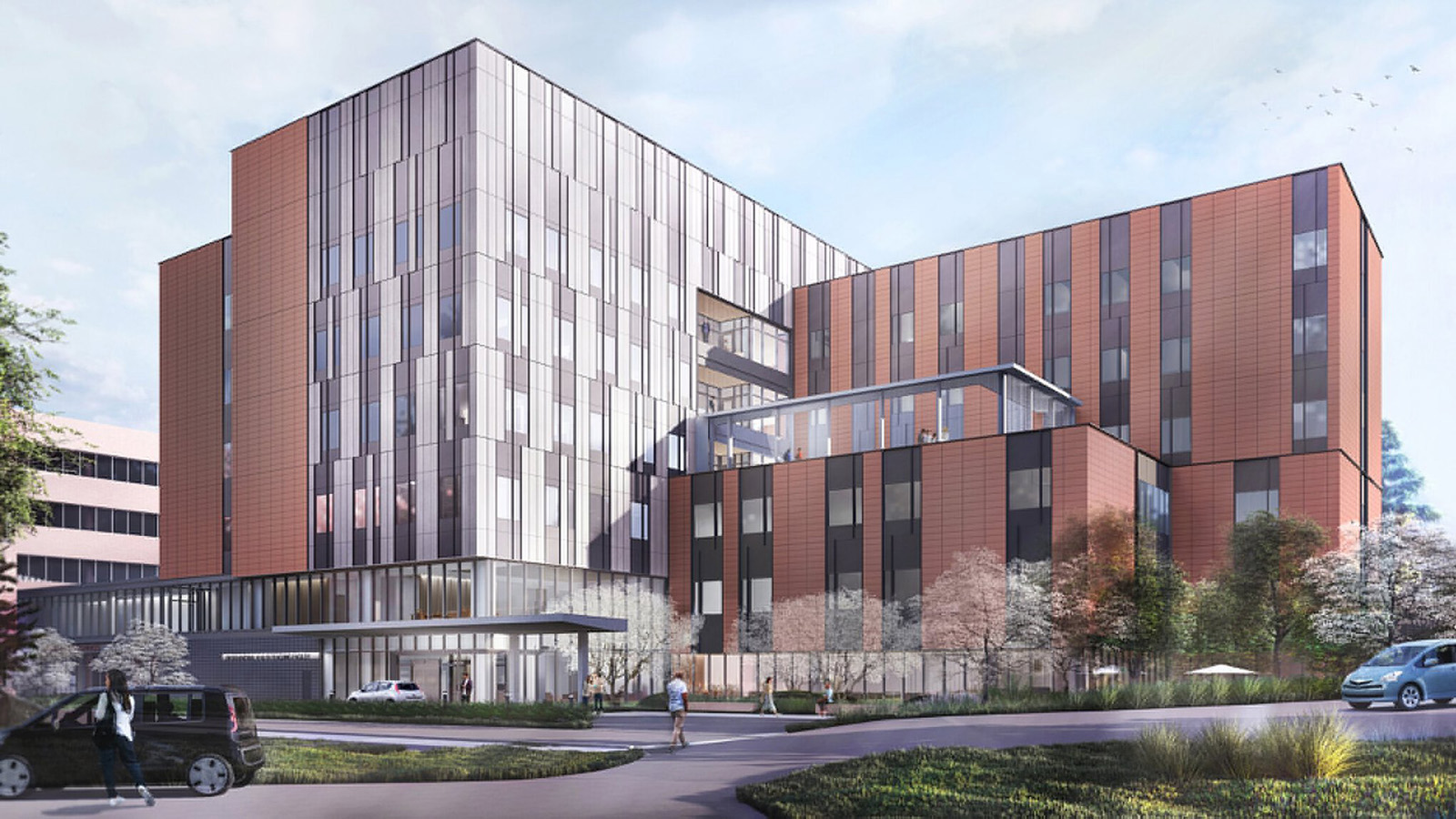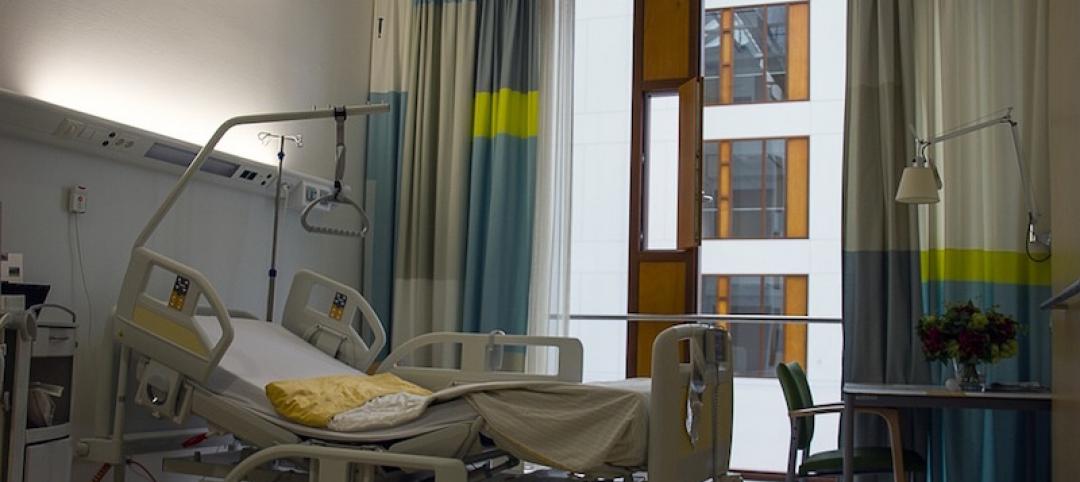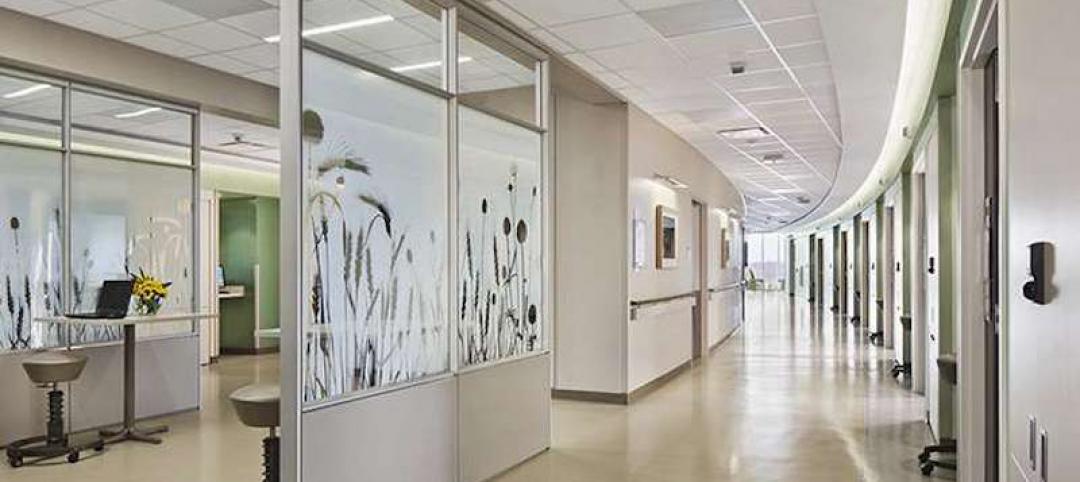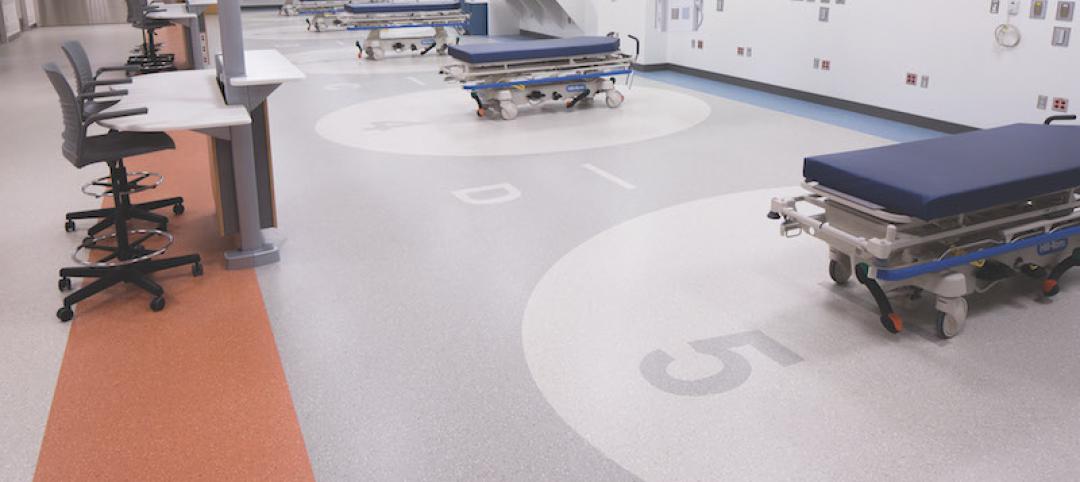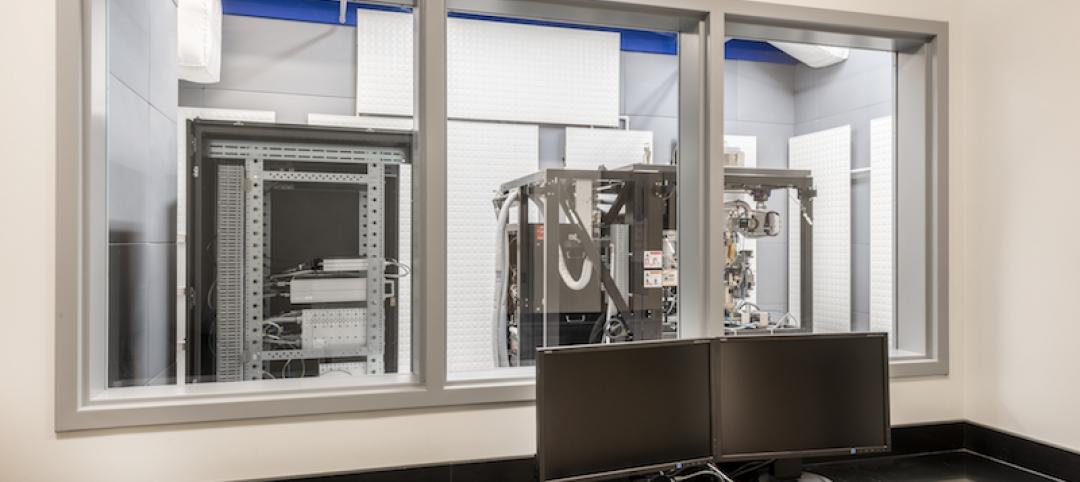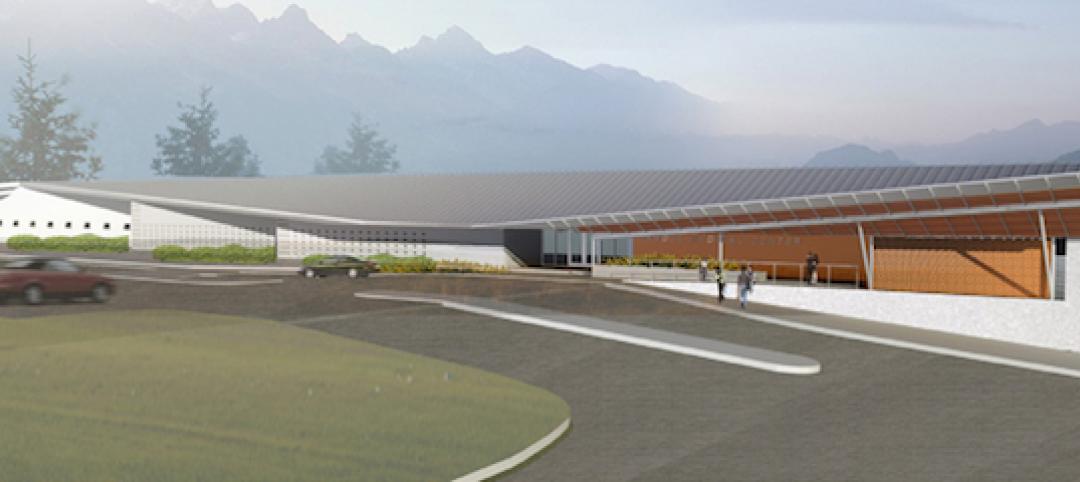On October 15, a joint venture comprised of the general contractors Clark Construction and JR Abbott Construction ceremonially broke ground for the new Behavioral Health Teaching Facility at the University of Washington’s Medical Center-Northwest campus in Seattle.
The six-story 184,000-sf facility, designed by SRG Partnership, is scheduled to open to residents in December 2023, according to the Seattle Times. Funded through $234 million in state appropriation, the facility is being built adjacent to the campus’s main hospital wing.
According to the University, the new building will have a 150-bed capacity, with 75 long-term civil commitment beds, 25 geropsychiatric beds, and 50 licensed med-surgery beds with the capacity to treat patients with psychiatric diagnoses and/or substance use disorders. Its top three floors will feature highly flexible inpatient units designed to respond to client needs from highly structured programs to programs that promote independent functioning and a transition to the community.
TELEPSYCHIATRY SERVICES A KEY COMPONENT
The project team and the University are calling this building one of a kind, in that it will provide a fully integrated and welcoming healing environment for patients struggling with physical and behavioral health problems. The building will include a procedural area for electroconvulsive therapy, and neuromodulation where patients can be treated with brain simulation therapy.
Also see: California University of Science and Medicine’s new School of Medicine
Brett Earnest, Clark’s Senior Vice President, says his firm has been working with the university for nearly two years to develop the facility, which when completed will serve as the home for the statewide 24/7 telepsychiatry consultation program and an interdisciplinary training and workforce development program focused on preparing and supporting the next generation of behavioral health providers for Washington State.
The Building Team is working under an Integrated Project Delivery contract. Its members include KPFF Consulting Engineers, Thornton Tomasetti, Ricca Design Studios, OJB Landscape Architecture, Mazzetti, PAE Engineers, McKinstry, VECA Electric, Schuff Steel, Performance Contracting Inc., and Queen City.
RECONNECTING MIND AND BODY
The Seattle Times reports that patients will have access to terraces and decks, sleep in secured private bedrooms, and meet with physicians and other staff in spacious treatment areas. Terracotta tiles will flank the building’s outer structure. Common spaces will feature calming muted colors. Outdoor benches will be crafted from reclaimed trees. The first floor of the building will house a public dining hall for staff and visitors.
Carl Hampson, SRG’s Design Principal, told the newspaper that choices for materials and fixtures were prioritized based on patient safety criteria. The building’s design, created in collaboration with our clinical stakeholders, will promote healing and well-being, “reinforcing the connection between mind and body,” Hampson said.
Related Stories
Healthcare Facilities | Feb 6, 2017
NYC cancer hospital rises to the occasion
A recent analysis of patient volumes showed that Memorial Sloan Kettering Cancer Center would run out of space for new construction at its Upper East Side campus in Manhattan in just a few years.
Healthcare Facilities | Feb 3, 2017
Urgent care centers: True pioneers of retail healthcare delivery
Hospitals, either individually or in joint ventures, run 37% of U.S. urgent care centers.
Healthcare Facilities | Jan 19, 2017
A survey challenges the efficacy of decentralized nurses station design
The Institute of Health + Wellness Design at the University of Kansas raised questions after reviewing a hospital’s renovated orthopedic unit.
Healthcare Facilities | Dec 22, 2016
Has ‘green’ delivered on its promise to the healthcare sector?
As we approach the end of the second decade of LEED, the financial costs and benefits of going green are well documented, write CBRE's Lee Williams and Steve Higgs.
Healthcare Facilities | Dec 13, 2016
How healthcare systems can reduce financial risk with developer-owned hospitals
When entering a new market, the financial risk can be magnified to the point that the investment – although critical to a system’s future – becomes unpalatable to a governing board.
Sponsored | Flooring | Dec 7, 2016
Reading Hospital expansion project saves two months in construction schedule thanks to nora nTx
Construction delays are common with projects as large as the $354 million Reading Hospital expansion. Maybe that’s why construction manager Jeff Hutwelker, project executive with LF Driscoll Co., LLC, was so pleased with his nora® experience. By Hutwelker’s estimates, nora nTx saved approximately two months in his construction schedule.
Healthcare Facilities | Nov 30, 2016
Utilizing real estate to build physician networks
How hospitals can partner with their doctors to build an ambulatory network.
Healthcare Facilities | Nov 10, 2016
Prescription for success: Managing technology in the design of healthcare facilities
While the benefits of intelligently deployed technology are abundantly clear to both designers and healthcare end-users, it’s no simple task to manage the integration of technology into a building program.
Public Health Labs | Nov 3, 2016
Cutting-edge microscope facility opens on UMass Medical’s campus
Design and construction met rigorous requirements for sound, vibration, and temperature controls.
Healthcare Facilities | Oct 31, 2016
A world unbuilt: The moral implications of design
The communications challenges don’t even begin to compare to the inherent challenges of designing for a developing nation, writes CannonDesign's Michael McManus.


